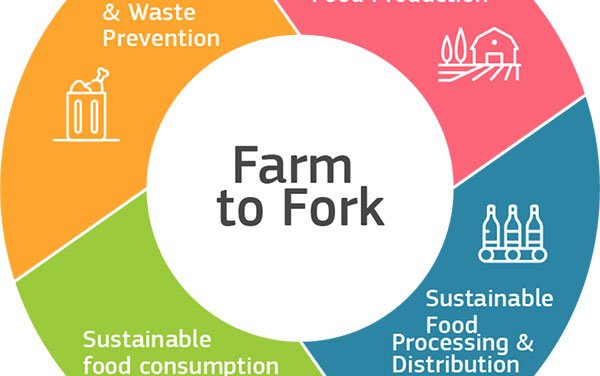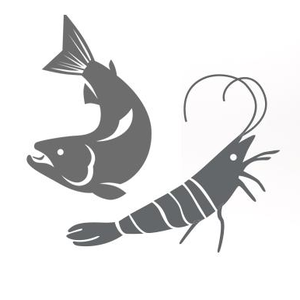The European Commission adopted a comprehensive new Biodiversity Strategy to bring nature back into our lives and a Farm to Fork Strategy for a fair, healthy and environmentally friendly food system. The two strategies are mutually reinforcing, bringing together nature, farmers, business and consumers to jointly work towards a competitively sustainable future.
In line with the European Green Deal, they propose ambitious EU actions and commitments to halt biodiversity loss in Europe and worldwide and transform our food systems into global standards for competitive sustainability, the protection of human and planetary health, as well as the livelihoods of all actors in the food value chain.
The Farm to Fork Strategy will enable the transition to a sustainable EU food system that safeguards food security and ensures access to healthy diets sourced from a healthy planet. It will reduce the environmental and climate footprint of the EU food system and strengthen its resilience, protecting citizens' health and ensuring the livelihoods of economic operators. The strategy sets concrete targets to transform the EUs food system, including a reduction by 50% of the use and risk of pesticides, a reduction by at least 20% of the use of fertilizers, a reduction by 50% in sales of antimicrobials used for farmed animals and aquaculture, and reaching 25% of agricultural land under organic farming. It also proposes ambitious measures to ensure that the healthy option is the easiest for EU citizens, including improved labeling to better meet consumers' information needs on healthy, sustainable foods.
European farmers, fishers and aquaculture producers play a key role in the transition to a more equitable and sustainable food system and the European Commission plans to support them from the Common Agricultural Policy and the Common Fisheries Policy through new streams of funding and eco-schemes to take up sustainable practices.

FEFAC response to Farm-to-Fork and Biodiversity strategies
FEFAC welcomes the EU Commission’s willingness to strengthen food security at both global and EU levels and the resilience of EU agriculture and food systems in its communication on FTF & Biodiversity. The EU feed industry has proven its capacity to secure essential feed and food supply chains for the provision of products of animal origin to EU consumers during the COVID-19 crisis, under very challenging conditions and in close cooperation with key supply chain partners and the EU Commission.
FEFAC fully agrees with the Commission analysis of the central role of the Common Agricultural Policy as the key policy delivery mechanism to provide safe, sustainable and affordable food to EU consumers. “As world leaders in animal nutrition efficiency, we also share the high level of ambition of the EU Commission to meet climate change targets, providing opportunities for EU agriculture and livestock production by providing incentives to produce “more with less”,” FEFAC said.
No food system can be sustainable without the production of farm animals, due to their essential role in transforming low value human inedible feed materials into high-value nutritious food via milk, meat and eggs to consumers. At the same time farm animals provide highly valued organic fertilizers to arable crops, making them a key component of sustainable food systems based on the circular economy principles. The feed industry's role is to provide optimized animal nutrition, reduced nutrient losses, improved animal health and welfare and increase environmental performance of animal production systems, via precision feeding systems and the adoption of new technologies.
FEFAC said that is deeply concerned about the potential adverse impact some of the key policy orientations included in the FTF and Biodiversity strategies could have on setting conflicting targets which may reduce the EU's food production capacity. “We, therefore, stress the importance of a thorough inception impact assessment, before any specific legislative measures, in line with better regulation practices. We believe this approach to be crucial to ensure policy coherence at the EU and national level, in particular regarding the EU's objective to raise the production and competitiveness of home-grown vegetable proteins,” FEFAC said.
The EU feed industry has not waited for the FTF Communication in developing new tools for its members and livestock farmers to increase the sustainability and competitiveness of feed and livestock production. It has developed an LCA based methodology for measuring the environmental performance of compound feed, the PEFCR Feed for Food-Producing Animals, validated in 2018 by DGENVI and EU 28 Member States. The FEFAC Soy Sourcing Guidelines have made a significant contribution facilitating the transformation of the EU soy supply chain. A new module on deforestation-free soy supplies is currently under preparation. FEFAC member companies are offering tailor-made animal nutrition solutions to reduce the need for therapeutic antibiotics at farm level, as part of a farm animal health and welfare management system.
FEFAC president Nick Major said that “the EU feed industry is a key driver for the development of sustainable food systems for farm animals and aquaculture. We, therefore, share some of the overall objectives of the FTF/Biodiversity communication on sustainable food systems. We do however fear that conflicting policy targets and measures announced in the EU Commission communication may undermine the EU's food production capacity and global leadership role in developing resource-efficient sustainable and circular food production systems. We do fully support the new priority setting on food security, resulting from the lessons of the COVID-19 crisis and would strongly recommend to carry out an in-depth inception impact assessment before taking any specific legislative measures, preventing any “unintended consequences” by denying farmers access to proven technology, without providing tangible, effective alternatives.”












